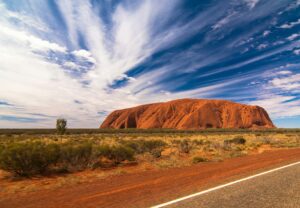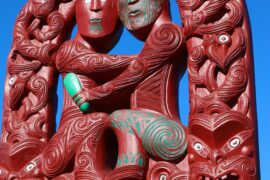Contents
Does New Zealand have hurricanes?
Greetings, fellow adventurers! Have you ever found yourself pondering the question: “Does New Zealand, with its breathtaking landscapes and stunning coastlines, have to contend with the mighty force of hurricanes?” If so, prepare to embark on an enlightening journey as we unravel the truth behind this captivating query.
Understanding Hurricanes: A Force of Nature
Before we embark on our quest, let’s ensure we’re on the same wavelength regarding hurricanes. Imagine colossal swirling storms with fierce winds and torrential rains – that’s the essence of a hurricane. These natural phenomena, also known as tropical cyclones, possess the power to reshape landscapes and challenge the resilience of communities in their path.
For instance, let’s take a glimpse at Hurricane Katrina, a notorious hurricane that devastated the Gulf Coast of the United States in 2005. Its destructive force serves as a stark reminder of the sheer power and unpredictability of hurricanes.
New Zealand’s Geographic and Climatic Context
Nestled in the southwestern Pacific Ocean, New Zealand boasts a diverse range of climates, from subtropical in the north to temperate in the south. Its unique geographical location shields it from some of the more extreme weather patterns experienced by its neighbors.
For instance, the Southern Alps of the South Island act as a natural barrier, deflecting much of the severe weather that would otherwise make landfall. Additionally, New Zealand’s position in the Roaring Forties, a region known for its strong westerly winds, influences its weather patterns and helps mitigate the impact of tropical cyclones.
Tropical Cyclones vs. Hurricanes: Clarifying the Terminology
Now, let’s dispel any confusion surrounding the terminology. While the terms “tropical cyclones” and “hurricanes” are often used interchangeably, they refer to the same type of storm system. In the Pacific region, these storms are typically referred to as tropical cyclones.
To illustrate, consider the devastation wrought by Cyclone Yasi in northeastern Australia in 2011. With winds reaching speeds of up to 285 kilometers per hour (177 mph), Cyclone Yasi left a trail of destruction in its wake, underscoring the ferocity of tropical cyclones.
Historical Record of Hurricanes in New Zealand
While New Zealand may not be synonymous with hurricanes, it does have a history of tropical cyclones making landfall. While relatively rare compared to regions like the Caribbean or the Gulf of Mexico, these storms have left an indelible mark on the country’s history.
Take, for example, the infamous Wahine storm of 1968, which struck the Wellington region with ferocious winds and torrential rains. The sinking of the MV Wahine ferry resulted in one of New Zealand’s worst maritime disasters, claiming the lives of 53 people and highlighting the potential dangers posed by tropical cyclones.
The Role of Climate Change
As our planet’s climate undergoes rapid changes, the frequency and intensity of extreme weather events, including hurricanes, are under scrutiny. Scientists are monitoring how rising temperatures and shifting weather patterns might influence the likelihood of hurricanes in New Zealand.
For instance, recent studies suggest that climate change may lead to an increase in the frequency and intensity of tropical cyclones in the Pacific region. While the full extent of these changes remains uncertain, they underscore the importance of proactive measures to mitigate the impact of hurricanes.
New Zealand’s Preparedness and Response
In true Kiwi spirit, New Zealanders are no strangers to being prepared for whatever Mother Nature throws their way. With robust emergency management systems in place and a strong sense of community resilience, the country stands ready to face the challenges posed by hurricanes.
For example, following the devastation caused by Cyclone Gita in 2018, New Zealand authorities swiftly mobilized resources to support affected communities and facilitate recovery efforts. From emergency shelters to logistical support, the response to Cyclone Gita exemplified the nation’s readiness to confront natural disasters head-on.
Here are some historical records of hurricanes or tropical cyclones that have impacted New Zealand:
- Cyclone Giselle (1968): Cyclone Giselle, also known as the Wahine storm, struck the Wellington region on April 10, 1968. It brought ferocious winds and heavy rain, leading to the sinking of the MV Wahine ferry near the entrance to Wellington Harbour. The disaster resulted in the loss of 53 lives, making it one of New Zealand’s worst maritime disasters.
- Cyclone Bola (1988): Cyclone Bola struck New Zealand’s North Island in March 1988, causing widespread flooding and landslides. The storm dumped heavy rain across the region, leading to extensive damage to infrastructure, homes, and agricultural land. The aftermath of Cyclone Bola prompted significant recovery efforts and highlighted the vulnerability of coastal communities to tropical cyclones.
- Cyclone Cook (2017): Cyclone Cook made landfall in New Zealand on April 13, 2017, bringing destructive winds and heavy rainfall to parts of the North Island. The storm caused flooding, landslides, and power outages, disrupting transportation and causing damage to homes and businesses. Cyclone Cook underscored the importance of preparedness and resilience in the face of extreme weather events.
These are just a few examples of tropical cyclones that have left a lasting impact on New Zealand’s history and underscore the country’s vulnerability to extreme weather events.
Community Resilience and Awareness
But preparedness isn’t solely the responsibility of governments and agencies – it’s a collective effort that involves every member of the community. From knowing evacuation routes to stocking up on emergency supplies, being proactive can make all the difference when a hurricane comes knocking.
Consider the efforts of communities in the Northland region, which is prone to flooding during severe weather events. Through community-led initiatives and awareness campaigns, residents have developed resilience strategies to minimize the impact of hurricanes and safeguard their livelihoods.
Case Studies and Analysis
Let’s delve into the annals of history to explore some of the most memorable hurricanes to hit New Zealand shores. From the destructive force of Cyclone Bola in 1988 to the unexpected twists and turns of Cyclone Cook in 2017, each storm tells a story of resilience, recovery, and the human spirit triumphing over adversity.
Take, for instance, the resilience of the Gisborne community in the aftermath of Cyclone Bola. Despite widespread destruction and disruption, residents rallied together to rebuild homes, restore infrastructure, and revive local economies, demonstrating the power of solidarity in the face of adversity.
So, does New Zealand have hurricanes? The answer is a resounding yes, albeit not as frequently as some other parts of the world. But as history has shown us, when hurricanes do make landfall, they leave an indelible mark on the landscape and the hearts of those who call New Zealand home. With climate change looming large on the horizon, the future remains uncertain. However, one thing is clear – the spirit of resilience and preparedness that defines the Kiwi way of life will continue to shine through, come rain or shine.
As we navigate the ever-changing tides of our planet’s climate, let’s remember to stay informed, stay prepared, and above all, stay resilient.
Happy exploring, and may the winds be ever in your favor!





